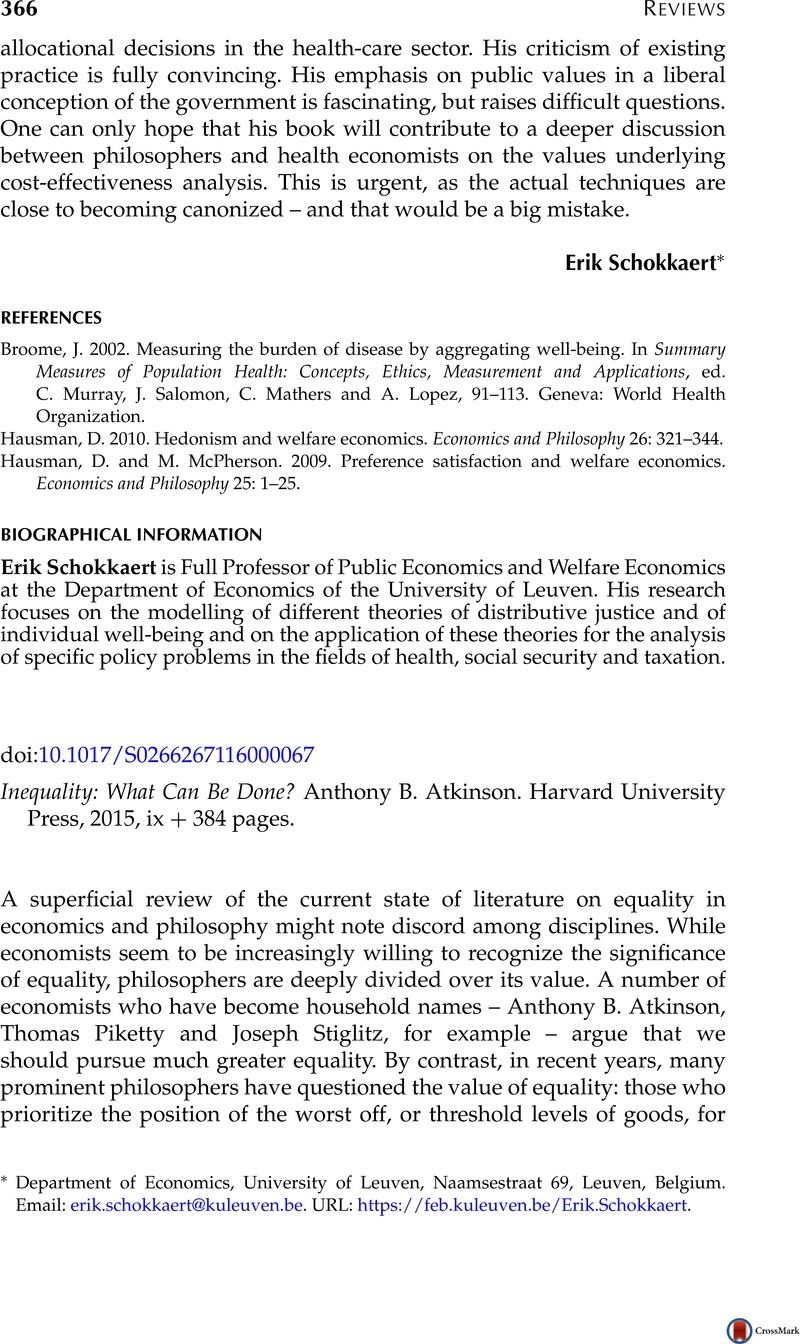Crossref Citations
This article has been cited by the following publications. This list is generated based on data provided by Crossref.
Fourie, Carina
2019.
Why Does Inequality Matter?, by T.M. Scanlon.
Mind,
Vol. 128,
Issue. 512,
p.
1397.



